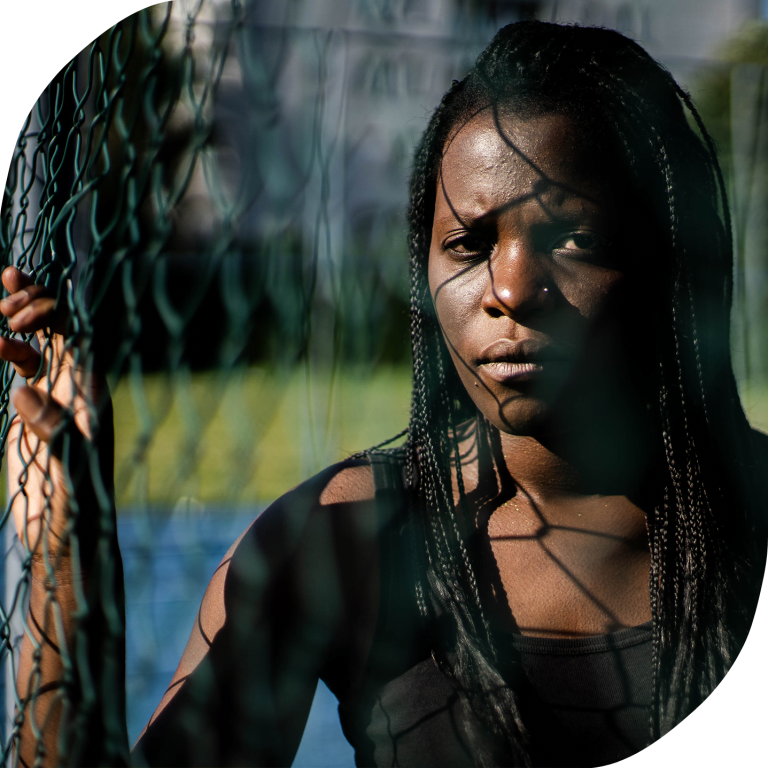Rights in detention
Disproportionate detention of certain groups, particularly Indigenous people, reveal systemic and substantive inequality in the operation of the law. These public institutions are required to interact with people when they are at their most vulnerable (including detained people, victims and family members of both) and they are therefore charged with upholding human rights protections in highly challenging and important circumstances. Our Office is committed to ensuring that laws and practices around detention are applied sparingly, proportionately and equitably. We will make certain that public bodies are held accountable for treating people in their custody in accordance with human rights protections.
Below are some of the examples of our work in this area.
Protecting the rights of vulnerable adults
In November 2023, B.C.’s Human Rights Commissioner launched an inquiry into involuntary detentions under the Adult Guardianship Act (AGA).
The Adult Guardianship Act permits designated agencies such as health authorities to provide emergency assistance to adults who appear to be abused or neglected and seem incapable of giving or refusing consent to receive care. Relying on this legislation, designated agencies have detained many adults in care facilities. However, the law is unclear about the scope and usage of these emergency powers.
The Commissioner’s inquiry looked into how these emergency powers work and whether detention practices align with human rights laws and standards. The final report, “We’re still here,” describes serious human rights issues with the legislation and practices—including a lack of transparency, oversight and respect for the right to due process—and disproportionate impacts on seniors, people who are unhoused and people with disabilities, including people with mental health and substance use issues, with effects that amount to systemic discrimination.
In response, “We’re still here” lays out 10 clear, actionable recommendations to protect the rights of vulnerable adults.
Advocating for greater equity in policing and detention
In March 2022, BCOHRC made a submission to the provincial government on the human rights implications of the agreement between BC Corrections and the Canada Border Services Agency (CBSA) to use provincial prisons to detain asylum-seekers under the Immigration and Refugee Protection Act (IRPA).
The Office is calling for the Province to terminate its agreement with CBSA, to respect its statutory and international human rights obligations and affirm the dignity and rights of migrants.
BCOHRC also made submissions in November 2021 to the Special Committee on Reforming the Police Act (SCORPA) that used disaggregated demographic data to reveal disturbing racial disparities in policing in our province. The Office recommends reforming a range of policing activities in B.C. to reduce systemic racism and improve safety by improving equity.
Protecting the rights of prisoners amid
COVID-19
In the early days of the COVID-19 pandemic, B.C. faced the possibility of an outbreak in provincial jails and the Commissioner raised her concerns to government, about holding prisoners in close quarters during the pandemic.
The Office urged government to apply a human rights lens to reducing transmission of COVID-19 in detention centres in British Columbia and issued a series of recommendations. Among them, a call to enable social distancing through targeted release of non-violent offenders and to ensure access to services upon release to enable them to self-isolate and protect their health.
Given the suspension of in-person family visits during the pandemic, the Commissioner also advocated that prisoners should have open, ongoing free access to phone calls so they can communicate with family during this period of heightened insecurity and fear.
What we know
of street checks in Vancouver were of Indigenous people despite representing just over two per cent of the population.1
of street checks in Vancouver were of Black people despite representing less than one per cent of the population.2
of people detained without consent under emergency provisions of the Adult Guardianship Act were not notified of their rights, including their right to counsel or to apply to court.
of the male youth in custody in B.C. are Indigenous and 32 per cent of imprisoned women in B.C. are Indigenous.3
